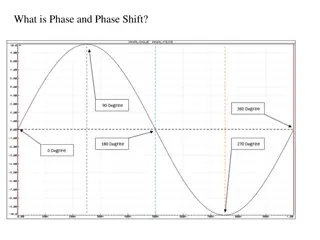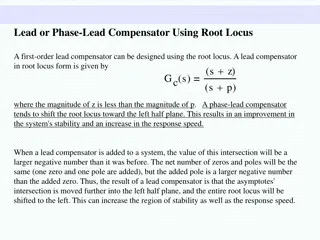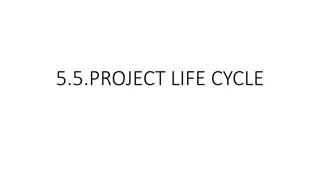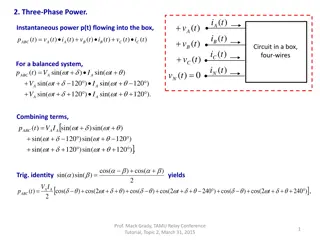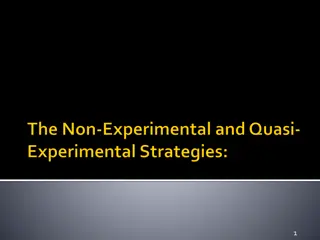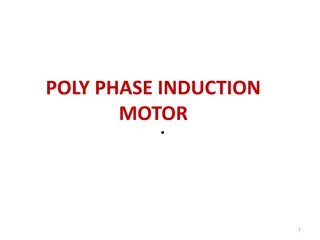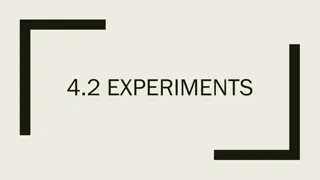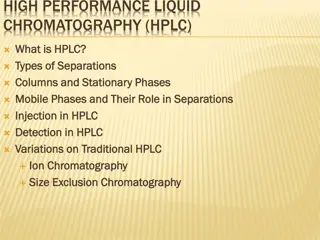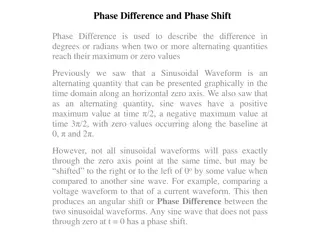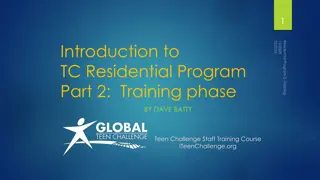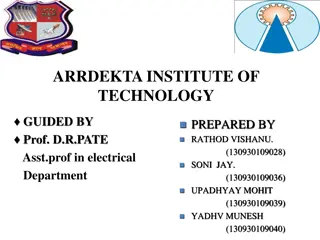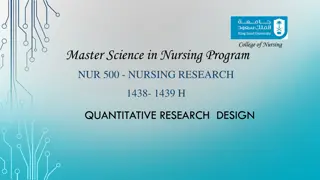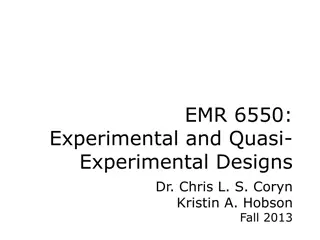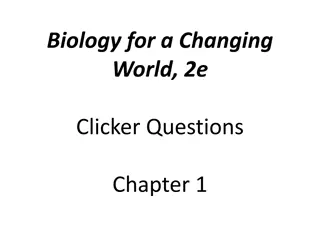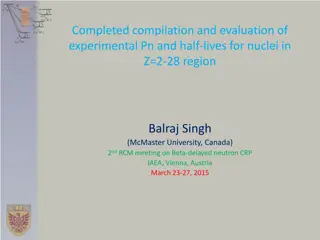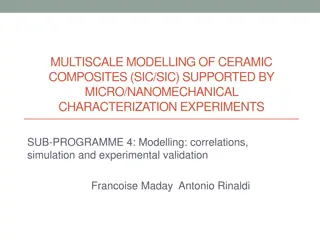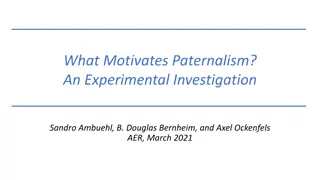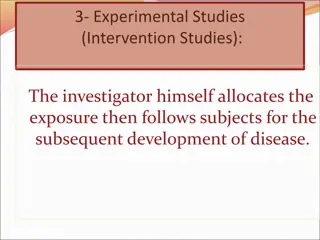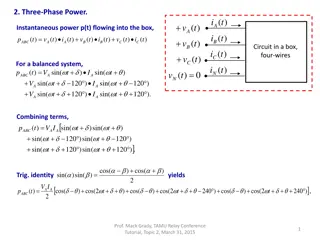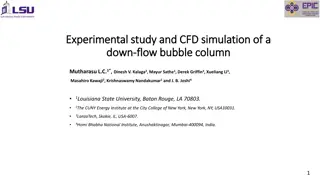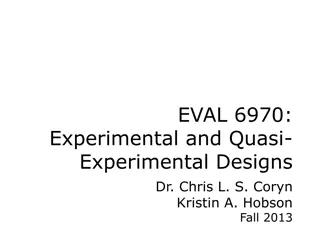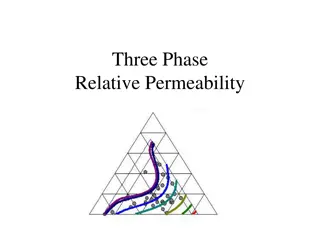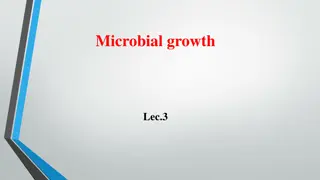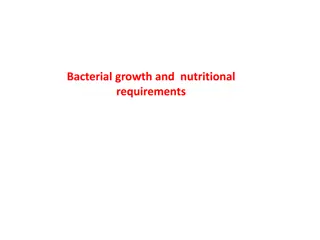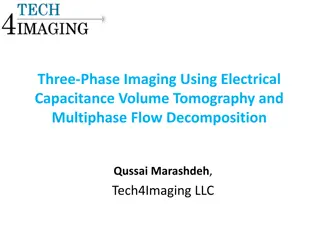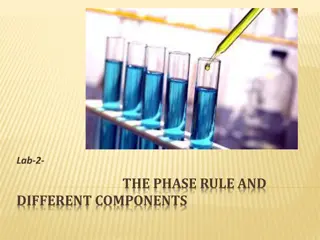Introduction to Experimental Economics by John Hey: A Comprehensive Overview
Explore the interconnected realms of Experimental Economics and Behavioral Economics through the insightful lectures of John Hey, an Emeritus Professor at the University of York. Discover the methodology of testing economic theories for validity and the practical applications of experimental economi
1 views • 58 slides
Insights on Experimental ASF Vaccines in Pig Studies
The research conducted by Prof. Jishu Shi and his team at Kansas State University delves into the safety and efficacy testing of experimental African Swine Fever (ASF) vaccines using pigs as the model. Various vaccines, including DNA vaccines and live attenuated viruses, were tested against differen
4 views • 13 slides
Understanding RC Phase Shift Oscillators
Dive into the world of RC phase shift oscillators, exploring the concepts of phase and phase shift in electronic circuits. Learn how cascading RC networks can achieve specific phase shifts, the role of impedance, and the practical applications of RC feedback networks in oscillator circuits. Discover
0 views • 18 slides
Understanding Lead and Phase-Lead Compensators
Lead and Phase-Lead compensators play a crucial role in improving system stability and response speed. By using the root locus and frequency response methods, these compensators shift the root locus toward the left half-plane, adding positive phase over the frequency range. This leads to increased s
0 views • 16 slides
Understanding the Three Stages of Project Life Cycle
The project life cycle consists of three key stages: pre-investment phase, construction phase, and normalisation phase. The pre-investment phase involves objective formulation, demand forecasting, and cost-benefit analysis. The construction phase focuses on building project infrastructure and invest
1 views • 5 slides
Understanding Three-Phase Power Systems and Instantaneous Power Flow
This detailed content delves into three-phase power systems, analyzing instantaneous power flow, balanced circuits, and trigonometric calculations. It explores the concept of constant three-phase power and provides insights into the analogy of a piston engine with infinite cylinders. The data includ
2 views • 9 slides
Understanding Phase Equilibria in Physical Pharmacy
Delve into the complexities of states of matter, phase equilibria, and the phase rule as explained by Assistant Prof. Dr. Fouad Al-saady in the context of physical pharmacy. Learn about phase definitions, phases in different systems, and examples illustrating phase differentiation in various substan
0 views • 22 slides
Phase 1 Phonics: Developing Early Listening and Speaking Skills
Phase 1 Phonics, the initial stage of Letters and Sounds, focuses on enhancing children's speaking and listening abilities to prepare them for phonics work in Phase 2. This phase emphasizes tuning in to sounds, listening and remembering sounds, and talking about sounds through various activities des
3 views • 17 slides
Understanding Nonexperimental and Quasi-experimental Studies
Nonexperimental and quasi-experimental studies resemble experiments but lack random assignment, making them valuable for group comparisons without establishing causation. This type of research design looks at differences between groups that already exist, focusing on group differences rather than ca
1 views • 35 slides
Understanding Poly Phase Induction Motor Construction
An induction motor is comprised of a stator and rotor, with the stator featuring a 3-phase winding fed from a 3-phase supply. The rotor comes in two types - squirrel-cage and phase wound. The squirrel-cage rotor consists of heavy bars tightly pressed on the shaft, while the phase wound rotor has a 3
0 views • 47 slides
Understanding Experiments in Research: Observation vs. Experimentation
Observation and experiments are two crucial methods in research. An observational study involves observing and measuring variables without influencing responses, while an experiment deliberately applies treatments to measure responses. Confounding variables can affect the results, and factors like e
0 views • 13 slides
Understanding Experimental Psychology: Designs and Control Issues in Research
This content delves into the basics of experimental research, focusing on different types of experimental designs and control issues. It covers between-group and within-group designs, discussing advantages and disadvantages, as well as methods for controlling for nonequivalence. The importance of ra
0 views • 26 slides
An Overview of High Performance Liquid Chromatography (HPLC)
High Performance Liquid Chromatography (HPLC) is a powerful analytical technique used for separating and identifying compounds in a mixture. It involves a mobile phase and a stationary phase to achieve separation based on different physicochemical properties. The mobile phase plays a crucial role in
0 views • 20 slides
Understanding the Phase Rule in Physical Pharmacy: Two Component Systems and Equilibrium Phases
The Phase Rule is essential in determining the state of a system based on components and phases. This study explores two-component systems in physical pharmacy, illustrating miscibility behaviors and equilibrium phases through diagrams and explanations. Understanding binodal curves, tie lines, and t
0 views • 12 slides
Understanding Probability: Experimental and Theoretical Concepts
Probability is the measure of the likelihood of an event happening, with experimental and theoretical probability being key concepts. Experimental probability involves determining probabilities through experience or experiments, while theoretical probability can be calculated without prior experienc
2 views • 23 slides
Understanding Phase Difference and Phase Shift in Sinusoidal Waveforms
Phase difference and phase shift describe the angular displacement of sinusoidal waveforms in degrees or radians. These concepts are crucial in analyzing the relationship between alternating quantities such as voltage and current. The phase angle determines the shift of a waveform along the horizont
1 views • 26 slides
Training Phase in Teen Challenge Residential Program
The training phase in the Teen Challenge residential program is a crucial period focused on developing drug-free lifestyles, deepening relationships with Jesus, and creating personal recovery and exit plans. Participants follow a structured daily schedule that includes devotions, classes, work progr
0 views • 12 slides
Phase Feed Forward System: Analyzing Beam Phase Stability and Theoretical Predictions
Exploring the impact of phase feed forward systems on beam phase stability through comparisons with theoretical predictions and simulations of increasing limitations. Testing the accuracy of theoretical gain factors and assessing performance using global gain factors. Utilizing specific data files a
0 views • 58 slides
Understanding Three Phase Transformers and Connections in Power Systems
Exploring the fundamentals of three-phase transformers and their connections in power systems, such as star-star, delta-delta, star-delta, and delta-star. Learn about advantages, disadvantages, and applications of these configurations in balanced and unbalanced loads. Discover how three single-phase
0 views • 19 slides
Quiz Review on Scientific Method and Graphing
Explore a quiz review covering topics related to scientific method, graphing, and experimental design. Understand key concepts such as hypothesis, scientific law, theory, variables, and experimental control through detailed questions and images. Test your knowledge on laboratory safety, inferences,
0 views • 14 slides
Understanding Quantitative Research Designs in Nursing
Delve into the world of quantitative research in nursing, exploring different research designs and the concept of causality. Learn about experimental, quasi-experimental, and non-experimental designs, as well as the characteristics of experimental design like manipulation, control, and randomization
0 views • 22 slides
Quasi-Experimental and Interrupted Time-Series Designs Overview
Explore the various quasi-experimental designs, control groups, pretests, and outcome patterns in research methodologies. Understand the implications of different outcome patterns on causal interpretation and validity threats in experimental studies.
0 views • 31 slides
Understanding Experimental Design in Biology
Explore key concepts in experimental design in biology through clicker questions focusing on hypotheses, variables, control groups, and experimental groups. Learn how scientists test hypotheses and analyze results to draw valid conclusions in biological studies.
0 views • 15 slides
Compilation and Evaluation of Experimental Data for Nuclei in Z=2-28 Region
Completed compilation and evaluation of experimental Pn and half-lives for nuclei in the Z=2-28 region, led by Balraj Singh at McMaster University. The work involved preparing lists of neutron-rich nuclides, identifying potential emitters, analyzing available experimental data for 1n, 2n, 3n, and 4n
0 views • 20 slides
Advances in Ceramic Composite Property Modeling and Experimental Characterization
European research focuses on advanced modeling of C/C, C/SiC, and SiC/SiC composites for aerospace and nuclear applications, with an emphasis on correlating simulations with experimental validation. Laboratories are progressing towards a multiscale approach, integrating micro/nanomechanical characte
0 views • 5 slides
What Motivates Paternalism? An Experimental Investigation
Centuries of normative debate on paternalism have resulted in its ubiquity in various aspects of society, from consumer protection to safety regulations. However, there is a scarcity of empirical studies on the motivations behind paternalistic interventions. This experimental investigation delves in
0 views • 12 slides
Understanding Experimental Studies: Intervention, Characteristics, and Measurements
Experimental studies involve the investigator assigning exposures and following subjects to observe disease development. Different types of experimental studies exist, such as preventive and therapeutic types, each with its limitations, including ethical concerns and challenges in recruiting subject
0 views • 13 slides
Understanding Nutritional Treatment Phases in Pediatric Malnutrition
This session covers the different phases of nutritional treatment in pediatric malnutrition programs, focusing on objectives, specifics, and criteria for transitioning between phases. An illustrative case of Annika, a 3-year-old in the Transition Phase, is provided for practical application and unde
0 views • 5 slides
Understanding Three-Phase Power Systems
This content discusses three-phase power systems, including instantaneous power flow, balanced systems, and trigonometric identities. It delves into the concept of smooth running machines in relation to three-phase power, analyzing the constant nature of instantaneous power. The analogies to a pisto
0 views • 7 slides
Experimental Study and CFD Simulation of a Down-flow Bubble Column
This study and simulation focus on the experimental setup, measurement techniques, and results of a down-flow bubble column. It explores novel features such as inverted bubbly flow, micro-bubble generation, and gas injection. Detailed analysis includes axial and radial variations of volumetric gas h
0 views • 25 slides
Understanding Experimental and Quasi-Experimental Designs
Explore the foundations of experimental and quasi-experimental designs, delving into causal relationships, counterfactual reasoning, and the importance of validating statistical and internal conclusions. Learn about causes, effects, and the complexity of determining causation in research. Discover R
0 views • 46 slides
Understanding Three-Phase Relative Permeabilities in Reservoir Engineering
Explore the application, correlations, and traditional assumptions of three-phase relative permeabilities in reservoir engineering. Learn about saturation-dependencies, occupancy models, and the challenges of measuring three-phase relative permeabilities. Discover how to calculate three-phase permea
0 views • 14 slides
Understanding Microbial Growth: Phases and Dynamics
Microbial growth is defined as an increase in cellular constituents leading to a rise in microorganism size or population. The growth of bacterial cells is characterized by distinct phases such as lag phase and exponential phase. During the lag phase, cells are synthesizing new components before div
0 views • 21 slides
Understanding Bacterial Growth and Nutritional Requirements
Bacterial growth involves processes like binary fission, exponential phase, and stationary phase. Factors influencing growth include nutrient availability, oxygen levels, and toxic waste accumulation. Lag phase precedes exponential growth, where cells prepare for division. Stationary phase occurs wh
0 views • 11 slides
Understanding Experimental Studies in Epidemiology
Epidemiological studies and experimental studies play vital roles in understanding cause-and-effect relationships in research. Experimental studies involve manipulating independent variables and measuring dependent variables, with categories such as true experimental, quasi-experimental, and pre-exp
0 views • 22 slides
Phase II Trial Design in Oncology Drug Development by Wendy R. Parulekar, MD, FRCP
This presentation covers the pivotal role of Phase II trials in oncology drug development, emphasizing the importance of preliminary clinical efficacy screening, adverse event profiling, mechanism of action understanding, and target population definition. It discusses various Phase II trial designs,
0 views • 76 slides
Advanced Imaging Techniques for Three-Phase Flows in Reactor Systems
Gas-liquid-solid reactor systems require advanced measuring techniques to understand complex three-phase flows. Multi-Phase Flow Decomposition using Electrical Capacitance Volume Tomography (ECVT) offers innovative solutions for visualizing and quantifying phase hold-up distributions and dynamic cha
0 views • 17 slides
Exploring Indian Poetry in English through the Works of Robin S. Ngangom
This lecture delves into Indian Poetry in English, focusing on the experimental phase and introducing poet Robin S. Ngangom. It discusses the key features of Indian poetry in the experimental phase, social progress, and Ngangom's background, poetic style, and themes. The lecture sheds light on Ngang
0 views • 7 slides
Understanding the Phase Rule and Components in Systems
The phase rule helps determine the minimum number of components needed to define a system's state. Components in equilibrium systems can be expressed as chemical formulas. Two-component systems can exhibit complete immiscibility, partial miscibility, or complete miscibility based on factors like con
0 views • 13 slides
Moving to the Design Phase: Feasibility Phase Checklist
The transition requirements for moving to the Design Phase include the Water Fund being deemed feasible, resources committed for design, and a formal decision made. The Feasibility Phase Checklist covers governance, science, finance, implementation, and communications aspects. The high-level action
0 views • 4 slides


